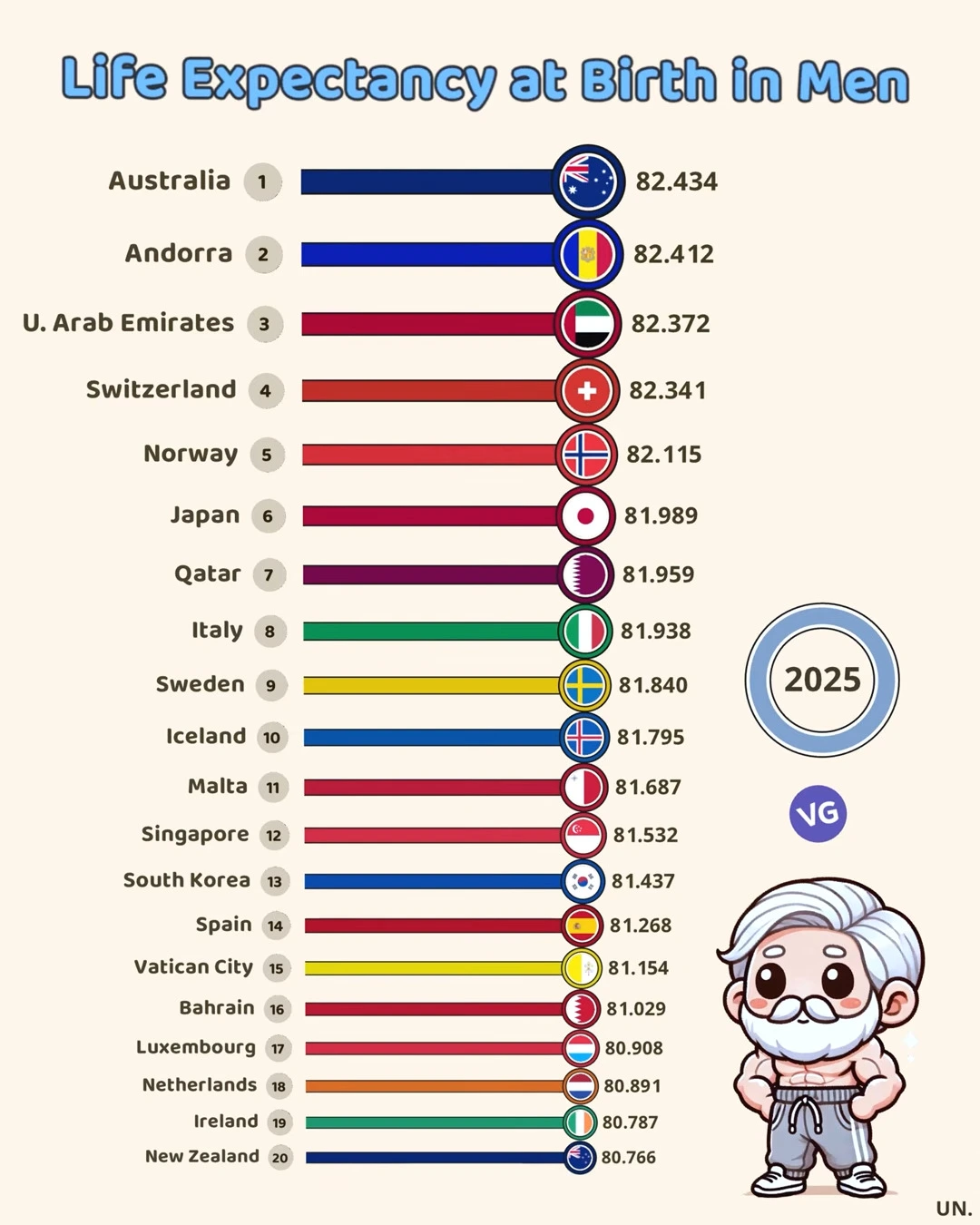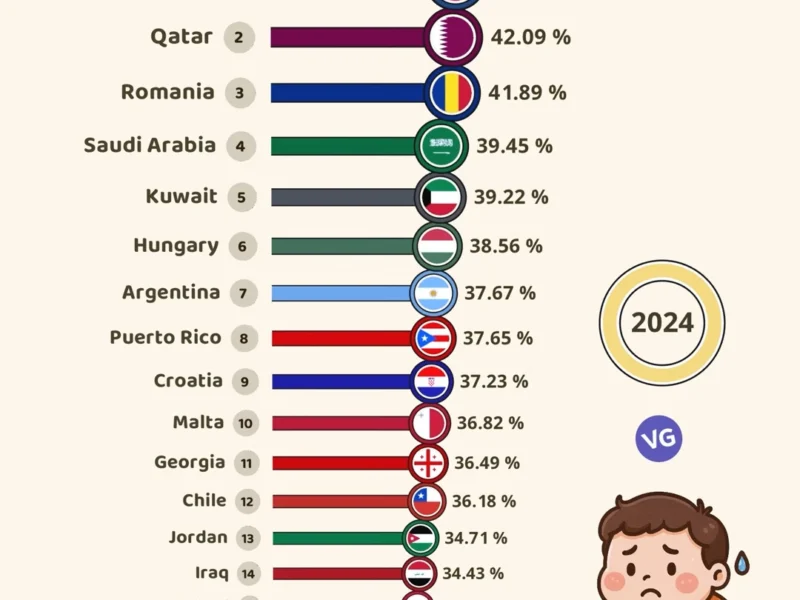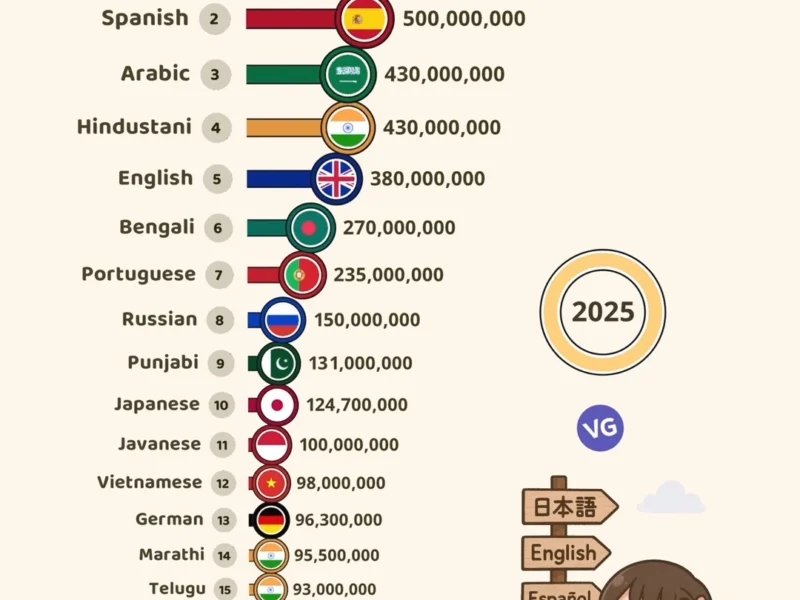Life expectancy is one of the most critical indicators of a nation’s health, economic stability, and overall quality of life. According to the latest data from the United Nations (UN), Australia currently leads the world in male life expectancy at birth, with an average of 82.434 years. Close behind are Andorra (82.412 years) and the United Arab Emirates (82.372 years), showcasing a global trend toward longer lifespans, particularly in developed and high-income countries.
Top 20 Countries for Male Life Expectancy (2025)
| Rank | Country & Flag | Life Expectancy (Years) |
|---|---|---|
| 1 | 🇦🇺 Australia | 82.434 |
| 2 | 🇦🇩 Andorra | 82.412 |
| 3 | 🇦🇪 United Arab Emirates | 82.372 |
| 4 | 🇨🇭 Switzerland | 82.341 |
| 5 | 🇳🇴 Norway | 82.115 |
| 6 | 🇯🇵 Japan | 81.989 |
| 7 | 🇶🇦 Qatar | 81.959 |
| 8 | 🇮🇹 Italy | 81.938 |
| 9 | 🇸🇪 Sweden | 81.840 |
| 10 | 🇮🇸 Iceland | 81.795 |
| 11 | 🇲🇹 Malta | 81.687 |
| 12 | 🇸🇬 Singapore | 81.532 |
| 13 | 🇰🇷 South Korea | 81.437 |
| 14 | 🇪🇸 Spain | 81.226 |
| 15 | 🇻🇦 Vatican City | 81.154 |
| 16 | 🇧🇭 Bahrain | 81.029 |
| 17 | 🇱🇺 Luxembourg | 80.902 |
| 18 | 🇳🇱 Netherlands | 80.891 |
| 19 | 🇮🇪 Ireland | 80.787 |
| 20 | 🇳🇿 New Zealand | 80.766 |
Key Factors Behind High Life Expectancy
Several factors contribute to higher life expectancy, including access to healthcare, lifestyle choices, economic prosperity, and environmental conditions. Countries at the top of the list share common features such as:
- Advanced Healthcare Systems: Nations like Switzerland (82.341 years) and Norway (82.115 years) have universal healthcare, ensuring early disease detection and high-quality treatment.
- Healthy Diets and Active Lifestyles: Japan, which ranks 6th (81.989 years), is well known for its diet rich in fish, vegetables, and low processed food intake, significantly impacting longevity.
- Economic Prosperity and Low Stress Levels: Countries like Qatar (81.959 years) and Luxembourg (80.908 years) benefit from high incomes and robust social welfare programs, contributing to overall well-being.
- Low Pollution and Clean Environments: Scandinavian countries such as Sweden (81.840 years), Iceland (81.795 years), and Finland (not in the top 20 but consistently ranked high in health indices) benefit from clean air, lower population density, and strong environmental policies.
Regional Insights and Emerging Trends
- Europe: Europe dominates the list with multiple entries, including Italy (81.938 years), Spain (81.268 years), and the Netherlands (80.891 years). These nations have strong healthcare infrastructure and a focus on work-life balance.
- Middle East: The presence of Qatar, Bahrain (81.029 years), and the UAE highlights the benefits of economic wealth, accessible healthcare, and improvements in public health policies.
- Asia: South Korea (81.437 years) and Singapore (81.532 years) have witnessed significant growth in life expectancy due to government-led health initiatives, a rise in technology-driven medical care, and cultural emphasis on healthy aging.
- Oceania: Apart from Australia, New Zealand also makes the list at 80.766 years, benefiting from high-quality healthcare and active lifestyles.
Challenges and Future Outlook
Despite global improvements, some challenges remain, including aging populations, rising healthcare costs, and lifestyle-related diseases. The Vatican City (81.154 years) makes an interesting entry on the list, possibly due to its small population and excellent healthcare access.
According to the World Health Organization (WHO), future increases in life expectancy will depend on tackling chronic illnesses, promoting mental health, and addressing environmental concerns such as air pollution. Countries investing in health technology, preventative care, and sustainable urban planning are likely to see continued improvements.
Conclusion
The data for 2025 indicates that male life expectancy is rising globally, with developed nations leading the charge. Factors such as universal healthcare, economic stability, and healthy lifestyles remain the biggest contributors. As medical advancements and public health policies evolve, we can expect further gains in longevity, benefiting future generations worldwide.



